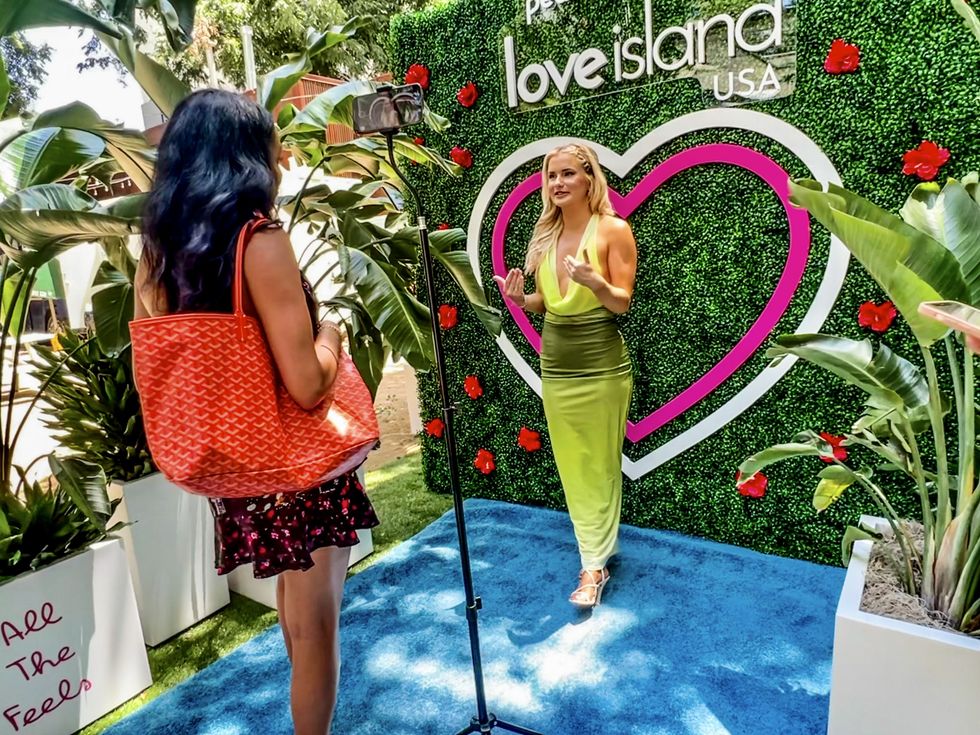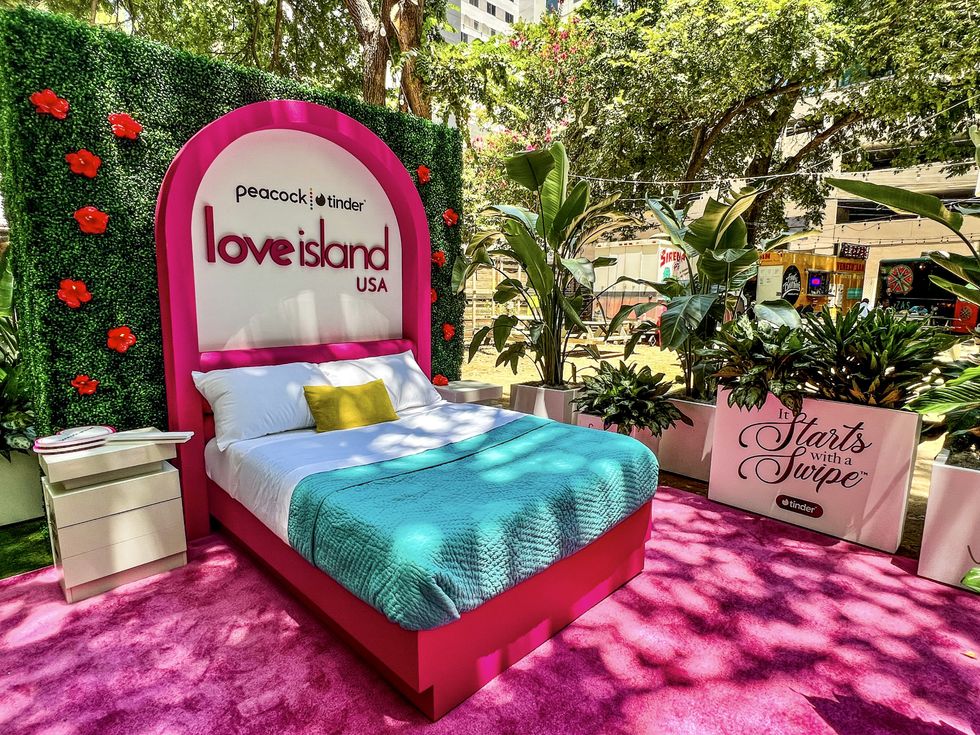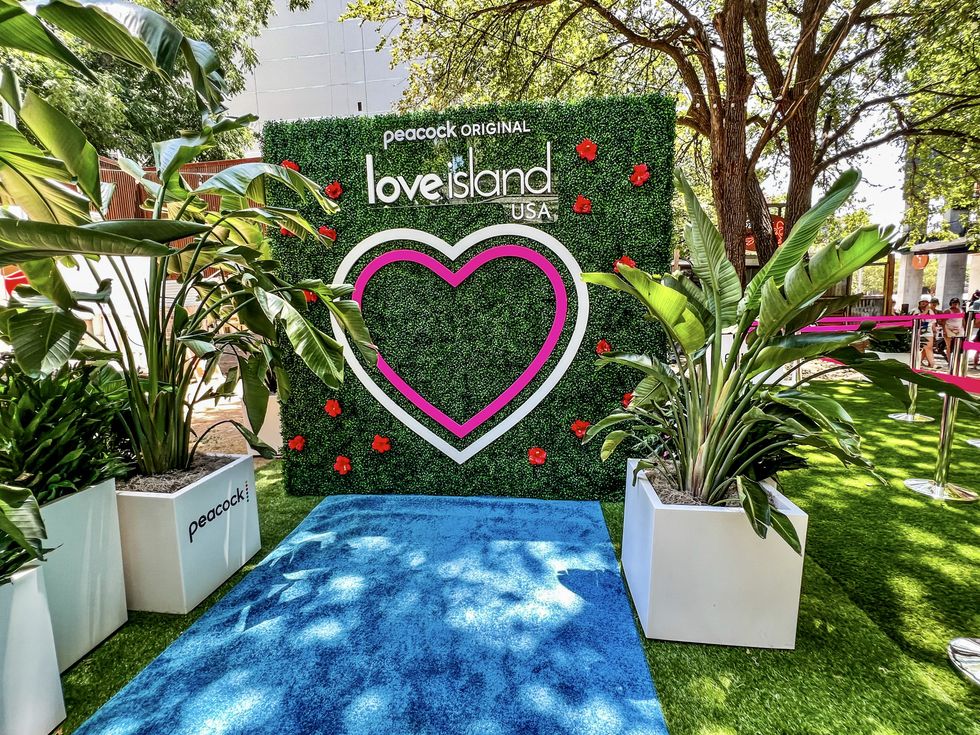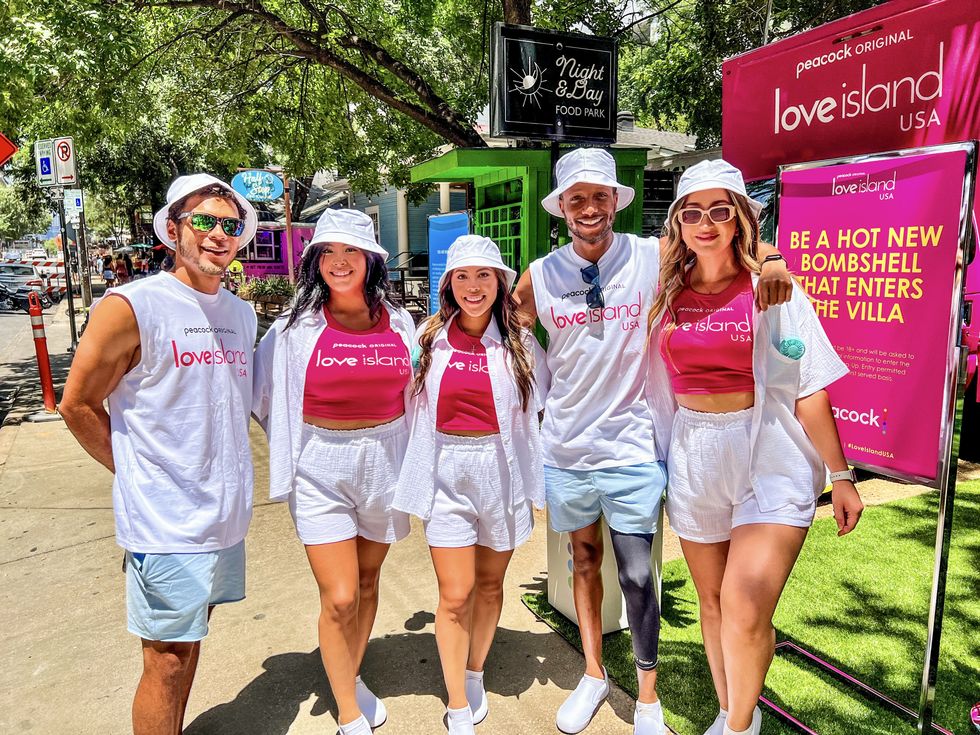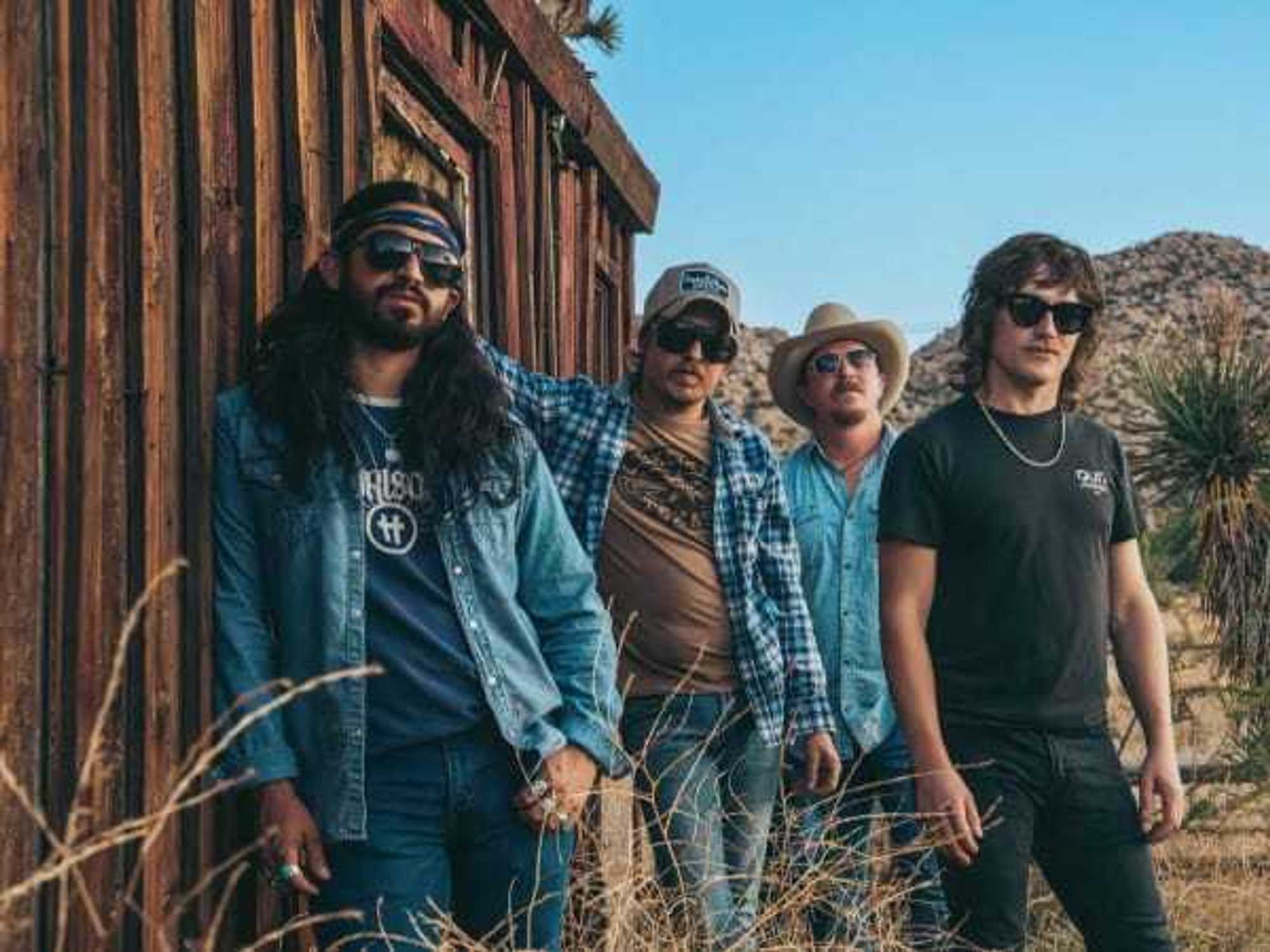Love Island Austin
Former Love Island USA contestant shares what it takes to land a spot on the series at Austin pop up
As if Austin isn't hot enough, things got even steamier on Saturday when "Love Island USA" popped up on Rainey Street. The Peacock reality dating series came to Austin looking for future contestants to appear on an upcoming season.
Fans were invited to record a video entering the villa, film an audition tape in person, and take fresh audition photos. There was also a bedroom photo op where anyone could snap a picture, as well as a meet and greet with former cast member Deb Chubb.
CultureMap spoke with Chubb about what it takes to land a coveted spot on the series:
"Be yourself, have a big personality ... stand out, don't be shy," the Dallas native said. "Make your bold statements like, 'I'm here because I'm the hottest b*tch in Austin!'"
Chubb also talked about the best part of the "Love Island" experience. "My favorite thing about being on the show probably was the friendships I made."
She went on to say that getting to meet people she never would have had the opportunity to meet was amazing.
While Chubb has visited Austin once before during college (she floated a nearby river and "did all the party stuff"), this was a short visit. She and her mom did, however, enjoy a dinner at Austin Proper Hotel's Peacock Restaurant.
Did the "Love Island USA" crew find any tantalizing Texans? We'll just have to wait and see! New episodes of Love Island USA are streaming now on Peacock Thursdays through Tuesdays at 8 pm CST.
